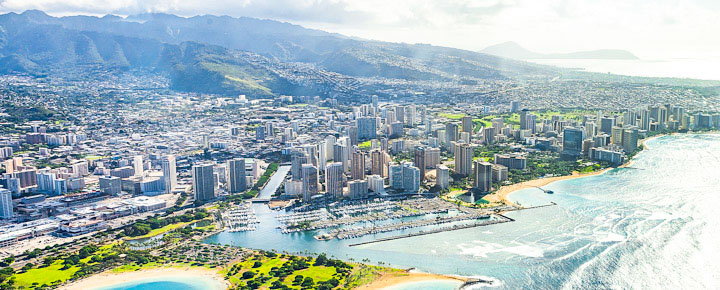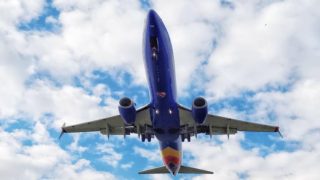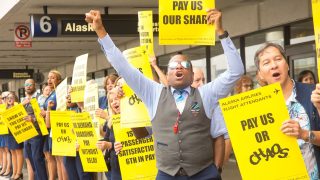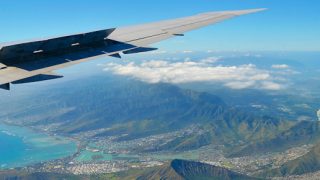As the year closes with record-breaking airline fees of $118 Billion, that includes hefty sums collected from Hawaii flights, there are even more egregious fees and other tricks either on the horizon or already coming into practice. When even that much income derived from seat selection fees, baggage fees, and in-flight offerings isn’t enough, airlines have further plans for us, as you’ll see below. We’ll tell you what’s ahead and how to fight back.
With the airlines grappling with both greater competition on ticket prices and the desire to show the lowest prices possible to attract buyers in a bait-and-switch type tactic, ancillary sales have become the industry go-to for driving profits.
Blame our tax code for some of this. Did you know that airline add-on fees are not subject to the 7.5 percent federal ticket excise tax.
Ancillary airline fees were once largely associated with carriers like Allegiant, Breeze, Frontier, Spirit, and Sun Country. They are among the companies that helped bring us the now ubiquitous seat assignment and bag fees.
As an example of where things are heading, some airlines, like British Airways, now even charge their business class customers for seat assignments (unless they’re also premium members)? That’s nuts, and it probably won’t stop with them. BA has also just started charging a credit card surcharge.
The way that fees are presented makes it easy for airlines, as on Hawaii flights, to display the teaser price. That happens before getting us hooked on the idea of going on a Hawaii vacation and all of the extra costs that follow. This is done to entice passengers, extract greater spend and drive profits.
Airlines create a questionable sense of urgency to purchase.
Have you ever noticed, for example, that airlines (Southwest is one example) let you know that there are only X number of seats available at a specific price? That may or may well not be true.
And remember that you always have 24 hours to cancel and get your money back when anything goes awry.
We mentioned recently that we were only able to buy one Hawaiian Airlines ticket at a time to get the best deal since they had marked up the price when buying two tickets together. We were able, however, to buy them separately and still travel together at the best fare. Had anything gone wrong, we’d have just used the 24-hour mandatory refund escape rule.
It’s hard to compare airline offers when the final price isn’t immediately obvious.
Airlines intentionally make it hard for us to compare prices. Whether on the airline’s website or via Google Flights. That is because additional charges such as seat selection and bag fees aren’t revealed until later in the buying process.
Avoid the airlines’ trip insurance, car rentals, and hotel offers.
It almost never works out in the traveler’s favor to buy any of these from an airline. But airlines have our attention and keep pushing them both in the initial purchase as well as in emails and app interactions that follow. Don’t buy these tactics. We suggest doing your own shopping and buying these separately.
Some of the new fees that airlines are concocting.
A number of low-cost airlines have already created fees that truly surprised us. And somehow, we think it isn’t stopping here or that Hawaii flights will be immune. Does the industry let the ultra low cost carriers try imposing these first, just to see how much it is possible to get away with?
Sun Country, which previously flew to Hawaii, now has a fee called a “passenger interface fee,” and it covers all reservations made via phone or on the airline or OTA’s website. Yikes! Apparently, the only workaround is to buy a ticket at an airport ticket counter. And the charge associated with that fee starts at $22 per flight. It is wrapped in its taxes and fees section of the cost and not specifically broken out. But Sun Country isn’t alone.
Others, with Hawaii flight aspirations, like Breeze (started by Jet Blue’s founder), have similar reservation fees, in their case called a technology development charge, starting at $27 each way.
Spirit also has a passenger usage fee starting at about $20 per flight.
And Allegiant, which went running from Hawaii, imposes an electronic usage charge, which will cost you from $22 per flight. Those are just the starting prices for these fees, by the way. Allegiant is also the only US airline that currently imposes a credit card surcharge which it calls a “convenience fee.”
Driving to the airport, parking, and waiting in line to buy tickets in order to avoid these fees is a headache for most of us. And airlines know that. It might, however, be worth it when large families or groups are traveling together.
What are you doing to help reduce the impact of airlines’ costly fee games?







As long as people pay these fees, the airlines have no incentive to not have them.
Just returned from flights on Hawaiian Airlines & was pretty annoyed being charged 2 different prices to check luggage even though I’m a member. Airport staff “couldn’t find my acct#” so charged me more on top of sear assignment sees. Traveling w/a disability & heavy walker forced me to check luggage. No assistance w/getting luggage on TSA ramp, check-weighing or w/overhead storage. HA lost my luggage to HI & lost my walker on the return flight. Arriving @ Maui airport 2 hrs early wasn’t enough for them…”You need 3 hours” Flight bumped to LAX because HA only had 2 agents checking people in.
Due to ridiculous airline fees, oppressive HI taxes/fees/surcharges on lodging & vehicles, not to mention the high cost of food & dining, we stopped visiting. We like to golf and Kauai has had 45 holes of resort golf shutter since 2014. It now costs about $250 to play each of the 3 resort courses with no PM rates or discounts. The two non-resort courses charge $120-$140 with no PM rates. No wonder they are all quiet. Wailua Muni is great, but crowded, since it is the only reasonable place to play.
“What are you doing to help reduce the impact of airlines’ costly fee games?”
I’m at a loss, whatever efforts are made, must be made “en masse” because individually we won’t be heard. Then, is it to individual airlines, government (again, this is worldwide) to voice our complaints?
Why do you insist on SWA? All Airline Fare Sales have limited number of seats available. Everyone knows thats the drill, and all Airlines do it.
Southwest has the most transparent fee schedule of any major airlines and there is never a charge to change. Major props to them for that.
When will we see an airline break ranks and knock off these crazy fees?
Once fees are implemented into any arena in life, there’s no going back. If they do, it is just placed into the main fee as a hidden fee.
Most airlines say they are competitive when they charge the same fees as other airlines. This is basically a de facto cartel.
This is an eye opener of an article. I anticipate the day when flight change fees would be implemented again. The bailout funds given to this industry due to covid was unprecedented. But, the concessions allowed to consumers made it palatable to justify. However, presently it seems like predatory measures from airlines are going way beyond normalcy. There should be no government bailouts or concessions in future, and open the USA skies to international competition.
This is a case where the FTC’s junk fee rule is really needed. Will it happen? Between the heavily lobbied congress and the courts, probably not.
The next thing the airlines
will be charging for will be a bathroom fee.
Fortunately, I believe this one has already been ruled against. No pay toilets. Especially since it was deemed a gender issue.
But they will serve you plenty of water and coffee for free at the start of the flight to ensure later bathroom use!
Gary C,
I don’t follow. Why would they give you plenty of things that cost them money if they will only be stuck with them returning the water and coffee (in a different form) later in the flight when they can’t charge for bathroom use?
Mahalo
One could only hope for extra water. Keep your airlines, if you have (all) the water one can drink.
I intend to circumvent all these outrageous fees and addons by the mysterious, arcane, and little known process of “moving back home” in a year :D. That’ll fix em! The problem is, the state will probably now implement a “returning resident fee” extracted from you to make up for the loss of tax revenue through the temerity of moving Off island and depriving them of their entitled funding… 😀
Best Regards
We constantly come visit Ko Olina
If you have great deals we like to know about them
Feeding Frenzy? Hawaii? Where? Not sure what all these “extra” fees have to do with your title. I mean these fees aren’t new or specific to Hawaii.